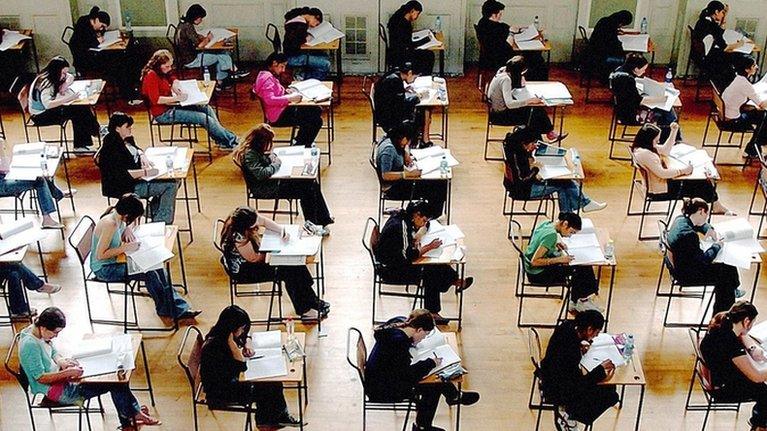GCSE English: Low grades shock for Wales in January exams
- Published
Pupils say they are worried about the impact the exam results could have on their final grade
Head teachers from across Wales have raised concerns over the "unexpectedly low" results for GCSE English language exams sat earlier this year.
The Association of School and College Leaders (ASCL) said grades for the January exams in Wales were "far below what was expected".
It follows a row over GCSE English exam results in 2012 which led to thousands of papers being re-graded.
The Welsh government says comparisons with previous exams are "misleading".
Robin Hughes, ASCL Cymru secretary, said they wanted an urgent investigation.
"A few heads contacted us as soon as they received the results because they were shocked at how unexpectedly low they seemed to be," he said.
"Almost all are saying that there's something odd going on.
"We have now contacted all members and asked them to get in touch with feedback. These results are too important to schools, to teachers and, most of all, to pupils for there to be any doubt about them."
'Bizarre' results
Mr Hughes said the results are for units in a new qualification, the first GCSE English language course to be made specifically for use in Wales only.
It was introduced in February last year and would mean the thresholds between grades in the subject will no longer be agreed with England and Northern Ireland.
Mr Hughes added: "It was examined for the first time in January 2014, and the results will go towards a final grade as other units are completed in the next few weeks," he said.
"But experienced heads are saying that the results are far below what was expected. This needs to be looked into quickly so that it does not demotivate pupils just when they are finishing this course and gearing up for summer exams."
A head teacher who did not want to be named reacted angrily to news of the results, telling the BBC: "These results do not in any way reflect the profile of my pupils. Incredible and unjustifiable scaling down of results."
Another teacher who also wanted to remain anonymous told the BBC their school was "extremely shocked and disappointed" at the set of results they had.
"The main problem is with the reading comprehension section of the paper. A question worth 10 marks has a national average result of three.
"In my class alone, I was expecting at least 12 A grades and I have had three.
"Eight pupils in the class have failed the exam completely and this is a set one where all pupils are predicted A*-B."
A head teacher from a high school in north Wales, who wanted to remain anonymous, accused the WJEC of making a "bizarre mistake".
"We entered our entire Year 11 for the exam," said the teacher. "Sixty to 70% of the children were expected to get a grade C or better but the figure was 27%.
"For the last five years 60% to 70% have got a grade C or better. We're a high performing school and our English department is stable.
"I'm absolutely baffled. You've got children who are predicted grade A pupils getting a grade E. It looks like the WJEC has made an error or a bizarre mistake."
Exam changes
Responding, the Welsh government said it was aware that results differed from January 2013.
"However, it is misleading to try to make direct comparisons between units as the new specification is structured differently to the previous specification," insisted an official.
"Also, the entry for January 2014 was much higher than for January 2013, with schools deciding to enter a greater proportion of learners before the end of the course.
"What is important is the overall outcome when learners cash-in their GCSE English Language results in the summer."
Gareth Pierce, WJEC's chief executive, said more people took the new exams, which put more emphasis on spelling and grammar.
This year, students also had to analyse an unseen piece of literary text while in an examination environment. In 2013 - pupils were tested on a piece of writing they had studied, and in a controlled assessment, rather than an exam.
"Those teachers with concerns regarding specific candidate results have access to our enquiries about results service on our secure website where they can request clerical re-checks and access original exam papers," he said.
A row over the English exams broke out in 2012 as GCSE results were published for pupils in England, Wales and Northern Ireland.
The then education minister Leighton Andrews claimed pupils in Wales were the victims of an "injustice" after receiving lower grades than expected following a shift in grade boundaries - and demanded papers be re-graded.
As a result, 1,202 students had grades increased from a D to a C and 598 from a C to a B grade.

Former education minister Leighton Andrews ordered a re-grade of GCSE English papers in 2012
Lowering boundaries also meant some changes at other grades. This resulted in an overall figure of 2,386 receiving raised grades.
Ex-WJEC acting chair David Lewis claimed Mr Andrews dismissed advice about the complexities re-grading would cause. He said the Welsh government was "authoritarian and incompetent" over the re-grading.
Mr Andrews dismissed the claims and said the comments demonstrated the necessity for the WJEC governance to change.
- Published28 January 2014
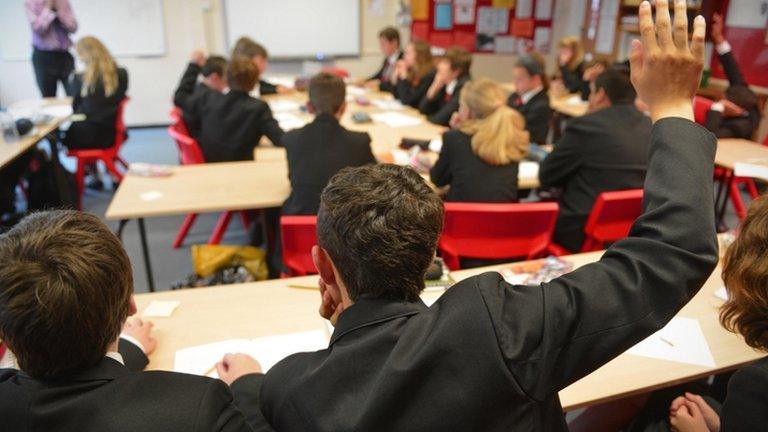
- Published21 February 2013
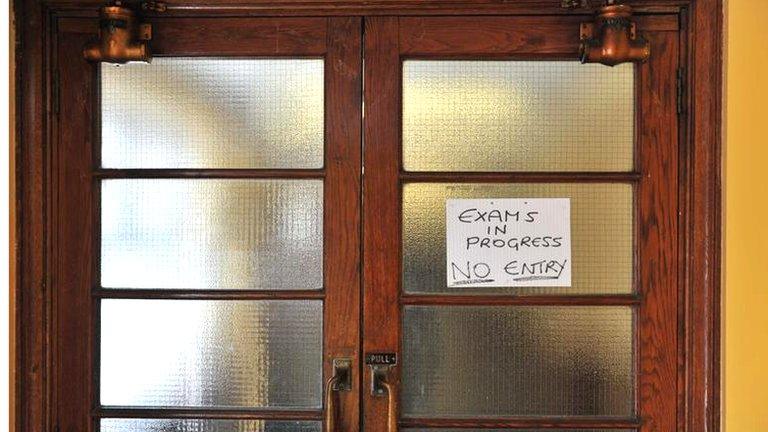
- Published28 November 2013
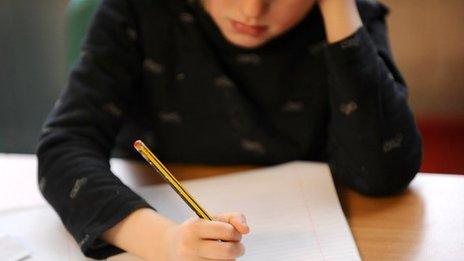
- Published1 November 2013
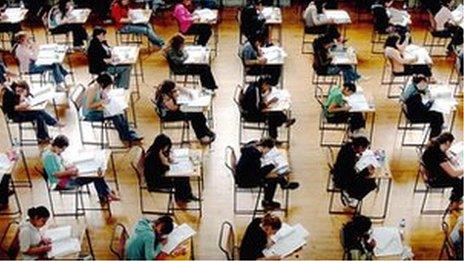
- Published4 October 2013
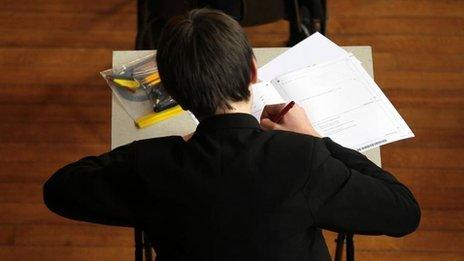
- Published19 September 2013
- Published22 August 2013
